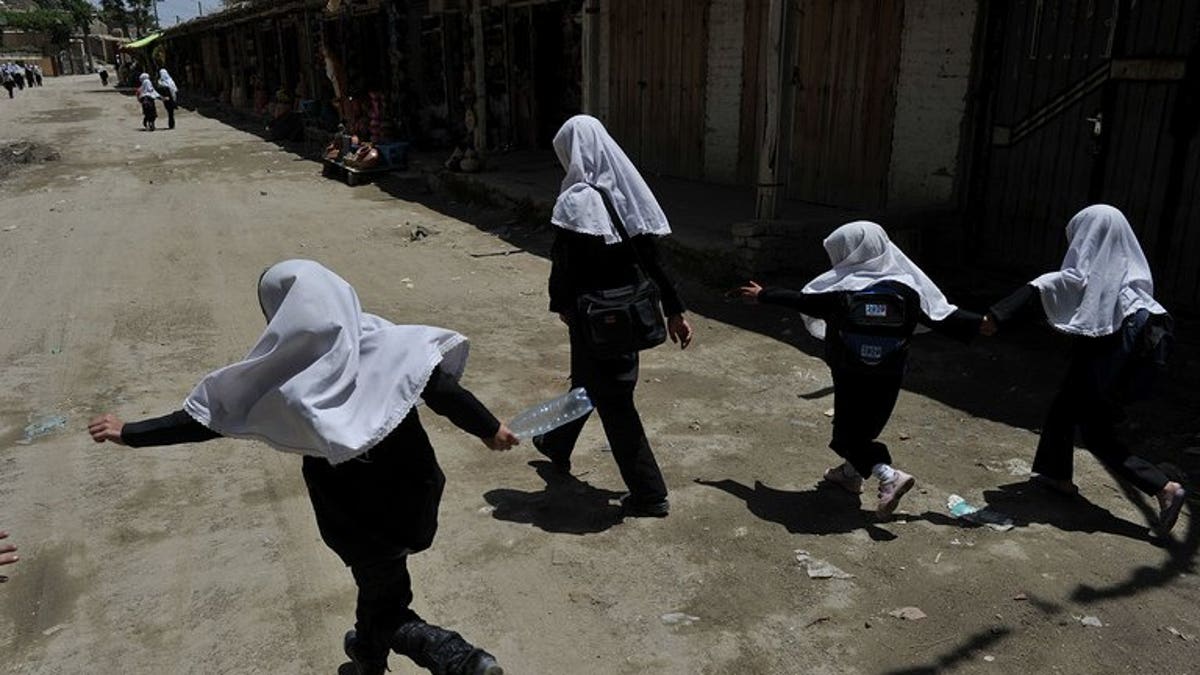
Afghan schoolgirls in Istalif, north of Kabul, on May 29, 2012. The education chief of an Indonesian city sparked outrage Wednesday after proposing that teenage schoolgirls should undergo virginity tests to enter senior high school. (AFP/File)
PRABUMULIH, Indonesia (AFP) – The education chief of an Indonesian city sparked outrage Wednesday after proposing that teenage schoolgirls should undergo virginity tests to enter senior high school.
Activists accused Muhammad Rasyid of promoting "sexual violence against women" after he suggested the plan following the arrest of six high-school students for alleged prostitution.
"If it is possible, the virginity tests will be carried out next year," said Rasyid, education head of Prabumulih city on Sumatra island.
The tests would affect students seeking to enter senior high school. In Muslim-majority Indonesia, senior high-school students are aged between 16 and 19.
"We will try to include the plan in our 2014 budget," he said of the proposal, adding it still needed approval from the city mayor and local parliament. "We will carry it out every year."
However, Rasyid conceded that there could be "some human rights concerns" over subjecting female students to intrusive virginity tests.
His proposal triggered immediate anger, with Education Minister Mohammad Nuh leading the condemnation: "If you want to protect your children from negative influence, there are others ways. This is not wise."
"A virginity test is a form of sexual violence against women," added Masruchah, the deputy head of the national commission on violence against woman, who like many Indonesians goes by one name.
"It is degrading and discriminatory against women."
The proposal looked unlikely to be adopted, however, as the city's deputy mayor, Ardiansyah Fikri, said that local authorities did not support it.
However he said religious and moral education programmes were being planned to discourage people from public displays of affection in the city.
"Young boys and girls are not shy about behaving intimately in public," he said. "Their morality is already out of control."
In 2010, lawmakers in Sumatra's Jambi province also proposed forcing teenage girls to undergo virginity tests to get into high school but the plan was dropped after opposition from central government.
Indonesia, a nation of more than 240 million people, is struggling to balance the country's rapid modernisation with traditional, mainly Muslim values.
